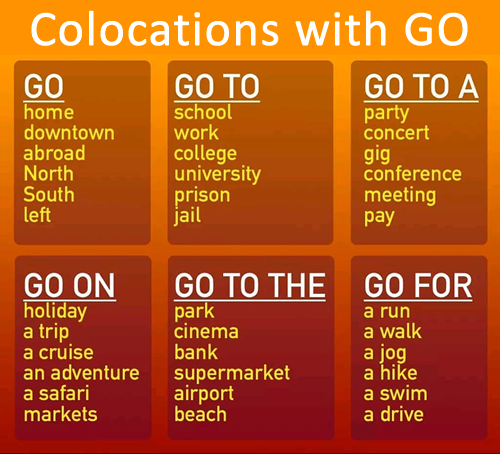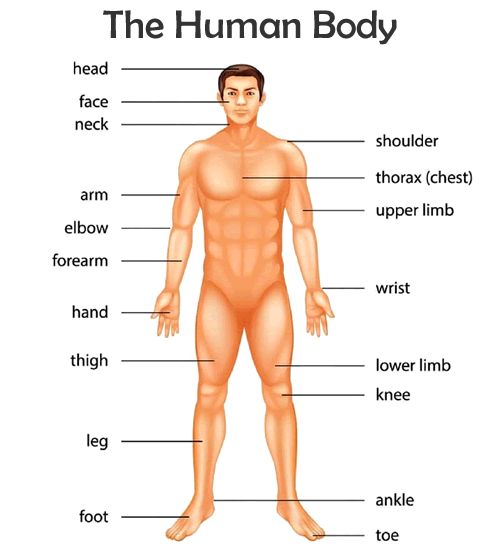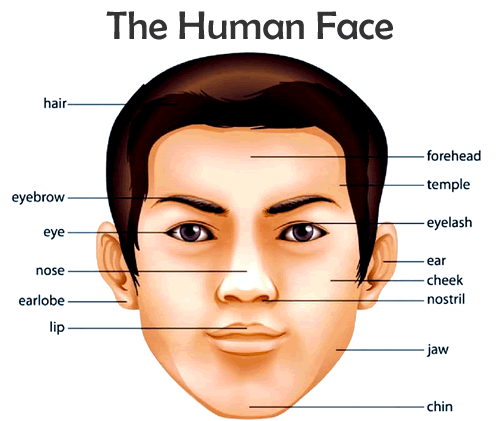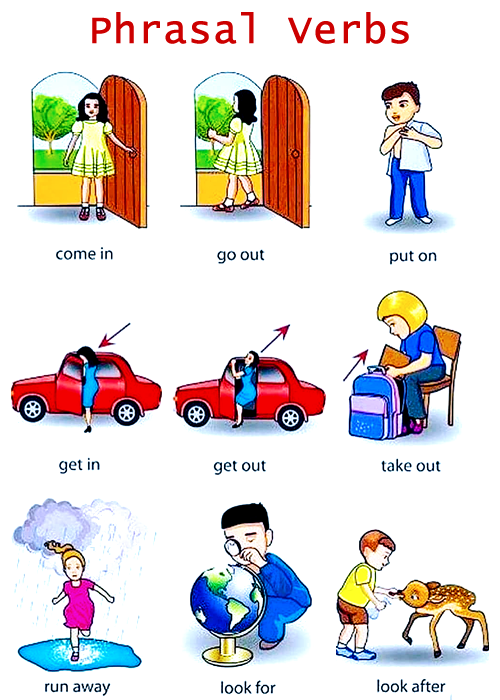
Spices refer to products used to flavor foods that come from the root, stem, seed, fruit or flower of a plant.
Here is a complete list of spices with explanations:
Ajwain – Typically ground, these seeds have a strong fragrance with thyme and cumin undertones. They are used in Asian, Ethiopian, North Indian, Iranian, North Indian and Pakistani cuisines. They pair well with starchy foods like flatbreads, green beans, root vegetables and legumes. Ajwain seeds are excellent mixed with lemon and garlic with fish dishes.
Allspice – This individual spice is commonly confused as a spice mixture. It has flavors of cloves, nutmeg, cinnamon and a little pepper, but it is in fact a single spice. It is a notable flavor in Jamaican Jerk seasoning and does well when mixed with other, similar spices.
Almond Meal – Almond Meal is made from ground almonds that have not been blanched. The consistency and application is more similar to corn meal than flour, and is not the same as almond flour. Our Almond Meal is made from almonds grown in California.
Anise Seed – Not to be confused with Star Anise, Anise seeds are small and look similar to Dill and Fennel seeds. Their aroma is sweet and licorice-like while their flavor is a bit fruity and warm. They are most notably used in Italian pizzelles, Australian humbugs and Peruvian picarones.
Annatto/Achiote Seed – One spice with two names, Achiote is the name of the spice created from grinding Annatto seeds. This spice is typically used for coloring more than flavor but can be cooked in oil to infuse a little flavor. It has a pleasant peppermint and flowery aroma and is essential for making Yucatan Recado Rojo and achiote paste.
Arrowroot Powder – Virtually flavorless, Arrowroot powder is a gluten free starch that can be used as a thickener in sauces, clear glazes, gravies and pie fillings. It can be substituted anywhere flour or cornstarch is called for and is in some cases considered to be superior to the two previously mentioned.
Asafoetida – Another popular spice for those following gluten free diets, Asafoetida is the dried latex that comes from the taproot of several species of Ferula (a perennial herb). Primarily used in Indian cooking, it has an aroma that might have you second guessing its culinary use at first smell. Once cooked in oil the aroma mellows and the onion-like flavor can shine through a bit more.
Beetroot Powder – Beetroot Powder is used as both a colorant and flavoring component. Made from dehydrated beets, Beet Powder is sometimes add as a sweetener in juices or sauces.
Bell Peppers – Technically part of the chile pepper family, bell peppers come in a wide variety of colors and range in flavor from a tiny bit sweet to crisp and almost tart. Bell Peppers have a SHU rating of 0.
Cacao – Sometimes confused with cocoa (hot chocolate), cacao is the pure, unprocessed and dried seed of Theobrama cacao. It can be found in nib form or ground into a powder. The flavor is intense with a subtle mouth – cooling finish. Cacao is the ingredient that is emphasized on wrappers of dark chocolate bars.
Caraway Seed – Most notably used to flavor rye bread, Caraway Seed has a sharp pungent aroma like dill and a sweet, warm, biting flavor that is reminiscent of anise. It seems to counteract the fattiness of meats including pork, duck and goose. It is also used in a variety of foods such as cabbage soup, goulash, pickles, sauerbraten, sauerkraut, sausages and German kummel liqueur.
Cardamom – Cardamom aka the Queen of spices in India (with pepper as her King) is used to intensify both sweet and savory flavors. Cardamom itself has a light lemony flavor, with an aroma that is rugged, but gentle, biting and fruity. Cardamom can be used in its whole pod form or the seeds can be extracted and ground into a powder depending on the type of dish being prepared.
Celery Seed – Our conventional Celery products is cultivated in India. Celery seeds and Ground Celery Seeds have more “earthy” taste that is still fresh and light. Depending on the season of the latest harvest, our organic Celery Seeds and Ground Celery is sourced from Egypt, India, the Netherlands and the US.
Chia Seeds – Chia Seeds are an incredibly versatile seed. When dry they are similar to poppy seeds, but once you add them to water they can increase in size up to 12 times their original size. Chia seeds are a popular Super Food because they contain more Omega-3 than any other natural source by volume. Their flavor is nutty and changes to slighty sweet when submerged in liquid. Chia seeds can be used in chocolate, oatmeal and jams. You may also find them on breads or pastries.
Chiles – Chiles vary in size and application, but generally add a small level of heat to a dish. We offer a variety of whole dehydrated chiles, as well as chile powders and flakes.
Cinnamon – Cinnamon is the oldest known spice, being referenced in written text in the 5th century. There are 4 distinct types. It actually comes from pieces of tree bark that have been sun dried. After drying, the bark is cut into strips or ground into a powder. There are a variety of cinnamon types, and each has a slightly different flavor as well as a different volatile oil content that determines its intensity. Cinnamon is used in baking and can also be found in an assortment of savory dishes.
Citrus Zests and Juice Powders – Fruit zests are the outermost skin of citrus fruits that do not include the white pith between the fruit and the peel. Zests can be reconstituted and used in baking recipes. They are also extremely popular with beer brewers for any beer that features a fruity flavor. The juice of these different fruits can also be dried and converted into a pure powder. These powders are popular in baking and cooking when a liquid component is not necessary.
Cloves – Cloves are probably the only spice that can be used by stabbing it into the food you’re cooking and just letting it sit. This popular way to flavor a holiday pork roast or ham is truly unique and also provides an aesthetic appeal. They can also be used whole when cooking liquids, such as cider, but they should be removed before serving. Ground cloves are used in spice blends such as Pumpkin Pie Spice, Chinese Five Spice and Garam Masala.
Cocoa Powder, Black Onyx – Cocoa powder is the processed, sweeter version of the natural cacao. Black Onyx Cocoa Powder had an extremely smooth flavor and gives color to one of America’s most iconic cookies, the Oreo. The sweet flavor works well with desserts, smoothies and even as a secret ingredient in steak rubs.
Coriander – The plant that produces coriander seed is one of three plants that produce both an herb and spice. The herb produced by this plant is Cilantro. Coriander is popular in Indian and Mexican dishes and provides a warm earthiness to dishes along with citrusy undertones. It is a popular ingredient with beer brewers.
Cubeb Berry – The flavor of Cubeb can be described as a mix between black pepper and allspice, with a small kick of spiciness. Cubeb berries can be used in the same applications as cloves and allspice, as they have a distinct, intense flavor. It works as a great ‘secret ingredient’ or as a substitute for black pepper.
Cumin – Cumin has long been an essential ingredient in cuisines around the world and has only relatively recently become mainstream as a spice in the US. Cumin has a very distinct earthy, nutty and spicy flavor with a warm aroma with hints of lemon. It is an ingredient in many spice blends and is used in bean, couscous, curry, rice and vegetable dishes.
Dill Seed – The plant that produces dill seed is a plant that produces both a spice and an herb, with the herb being dill weed. In the United States, dill is probably most associated with the flavor of dill pickles. In German, Russian and Scandinavian cuisines it is a popular spice used in cooking cabbage, onion, potatoes and pumpkin. The flavor is clean and pungent with anise undertones.
Extracts – Extracts made strictly with a spice or herb and a form of alcohol and should not be confused with “natural flavorings.” The spice or herb is submerged in the alcohol for a period of time, and therefore infuses the alcohol with flavor. The spice or herb is then typically removed from the alcohol before using. When making homemade extracts the herb or spice does not need to be removed, but keep in mind that the flavor will continue to intensify for as long as the herb or spice is submerged.
Fennel – Fennel Seed, called “the fish herb” in Italy and France, has two types, sweet and bitter. Bitter Fennel is the type that is typically referred to when the word ‘fennel’ is used in the United States. It has a warm, licorice type aroma with a flavor that is slightly sweet with camphorous undertones. It is used in beet, lentil, potato and meat dishes and adds flavor to Sauerkraut.
Fenugreek – Fenugreek seeds look more like small, caramel colored pebbles than seeds. They are extremely popular in Indian and Middle Eastern cooking and are used in a variety of curry powders. The flavor is nutty and bittersweet with a pungent, spicy aroma that has undertones of butterscotch and sweet nuts. The plant that Fenugreek Seeds come from also provide us with the herb Fenugreek Leaves.
Galangal Root Powder – Galangal Root Powder is a star ingredient in Southeast Asian cuisine. Galangal is a cousin of ginger and has a more piney and menthol flavor. Galangal Powder is extremely popular in Asia for its medicinal properties. Galangal pairs well with beef and works well in soups, stews and curries.
Garlic – Vampires beware, Americans eat an average of 3 ½ pounds of garlic per year and are thus almost inedible to all vampires! Garlic has been eaten by humans from the time the pyramids were built and continues to be a great addition to almost every savory food around. It tastes wonderful in combination with most spices and herbs.
Ginger – The ginger plant is a rhizome, producing a plant above the dirt’s surface and a horizontal stem below. These stems are what we consider ‘ginger’. The flavor is fierce and peppery with lemony undertones. Ginger can be used fresh and its juice is promoted as a superfood, being featured in probiotic drinks across the US. Ginger is also extremely popular in desserts like gingerbread and pumpkin pie spice.
Grains of Paradise – Also known as seeds of paradise, Grains of Paradise is a seed from West Africa that can be used in many of the same ways that peppercorns are used. The flavor is peppery and pungent with bitter fruity notes and the aroma is similar to cardamom and clove. Ground Grains of Paradise can be used wherever pepper is called for if you want a more flavorful profile. Grains of Paradise is extremely popular by beer brewers when making summer wheat beers, session pale ales and Belgian witbiers.
Horseradish Powder – Horseradish Powder is an excellent addition to egg or cream-based sauces for a zingy, potent end result. Horseradish Powder is an essential ingredient in cocktail sauce and adds a welcome warmness to winter meat dishes, especially roast beef or prime rib.
Juniper Berries – Juniper Berries come from an evergreen shrub that grows throughout the Northern Hemisphere. In Europe Juniper Berries are used in marinades for pickled elk and beef. Juniper berries are also important to flavoring sauerkraut. In the United States these berries might be most notably use as a flavoring for gin.
Long Pepper – Long Pepper is now considered an exotic spice, but it was used just as often as black pepper before the discovery of the “new world.” During this time Long Pepper was used wherever some extra heat was called for. After the discovery of the “new world” and the commercial transportation of chile peppers, it decreased in popularity, as cooks had access to ingredients that better fit the heat component called for in a variety of dishes.
Mace – Mace is the little known, lacy covering of nutmeg. Mace is removed from the outside of nutmeg in strips known as mace blades and can be ground after drying for easy culinary use. The flavor is warm with hints of lemony sweetness. It is often described as similar to but more delicate than nutmeg. Mace is considered a savory spice and works well as a replacement for nutmeg in lighter colored dishes where the dark specks of nutmeg are unwanted.
Malheb – Mahlab is the dried kernel of the St. Lucie Cherry Tree. It has a delicate almond flavor with hints of cherries and roses. It works especially well in combination with apricots, rose water, pistachios and dates. Maleb is not very popular in American dishes but is used by Greek-Americans as an ingredient in baked goods.
Mustard – Mustard seeds come in a variety of colors including yellow (also called white), brown and black. The darker the mustard seed, the more intense the flavor is when ground. Ground mustard is used to make mustard sauces and whole mustard seeds are used for pickling applications.
Nigella Sativa – Nigella Seeds are popular in Middle Eastern and Indian cooking. They are typically added to curries and vegetarian dishes after they are roasted. The seed itself has a little bit of a crunch which makes is a nice topping for flatbreads and rolls. Nigella seeds work well with other earthy spices like cumin, fennel seed and turmeric.
Nutmeg – Nutmeg is the seed of a yellow brownish edible fruit that grows on an evergreen tree. When picked, the nutmeg seed is covered in mace which is scraped off and sold as a separate spice. Nutmeg is typically solid all the way through and is most commonly used in its ground form. Nutmeg works well with hearty dishes such as lamb and mutton recipes, tomato sauces and vegetable stews. Nutmeg is always a popular flavor in baking and cold weather beverages.
Onion – The onion is also known as the onion bulb or common onion. When used fresh onion is considered a vegetable and in its dried, ground form is considered a spice. Onion is very popular inside of the United States, but also outside of this country with Libyans eating an average of 66.8 pounds of onion per capita.
Paprika – Paprika is a mild chile powder used frequently in South American, Hungarian and Spanish cuisine, with the popularity in the US rising consistently in the past 10 years. It has complex flavor undertones including a smoky flavor from smoked paprika and a slightly sweet, earthy flavor from domestic paprika.
Pepper – Peppercorns come in a variety of colors. Black, green and white peppercorns all come from the Piper nigrumplant. The color differences depend on the maturity of the berry as well as the drying process. Pink peppercorns are not peppercorns at all, instead they are berries from the Peruvian peppertree. Peppercorns are similar to wine in the way that the flavor nuances of the peppercorn will be determined by the area in which it is grown.
Poppy Seed – Poppy seeds are extremely tiny ‘blue’ seeds. It takes 900,000 of these seeds to make up a single pound of weight. Poppy seeds are popular in salad dressings, vegetable dishes, muffins and rolls. They give food a little crunch and have a nutty flavor profile.
Porcini Powder – Porcini Powder is made from ground dehydrated Porcini mushrooms, and has a much more intense and concentrated flavor compared to their fresh counterparts. Porcini Powder can be used to add depth and umami to a dish with an even flavor distribution, and without the texture of whole mushrooms.
Saffron – Saffron is the most expensive and most counterfeited spice in the world. The production of saffron is extremely labor intensive, as saffron is the pistil of a flower that must be picked by hand, with an average of only three to five pistils being produced per plant. Saffron is used in a variety of applications including being a seasoning, fragrance, dye and medicine.
Sesame Seed – Sesame Seeds come in a variety of colors including white, yellow, black and red. They are popular in Chinese stir fry and Middle Eastern spice blends. Sesame Seeds can also be used on baked goods such as breads, hamburger buns and pastries.
Shallots – Shallots have a flavor profile somewhere between onions and garlic. They are a delightful replacement for either in a dish that you want to give a little extra flavor. Shallots are often used in Indian curries and different types of lentil dishes.
Star Anise – Not to be confused with anise seed, star anise is a spice that has a shape similar to a star and typically has 8 points, but can have more or less. In the United States star anise is used similarly to cloves in application. The whole pods are used as mulling spices and the ground pod is used in baking and cold weather beverages.
Sumac – Sumac is a ground berry that is native to the Mediterranean region. It has an astringent, tart but fruity taste and a very faint aroma. Sumac is extremely popular in Middle Eastern dishes where you can find it in salads, meat and fish dishes and rice.
Sweeteners – Sweeteners encompass much more than just sugar these days. From dehydrated molasses to dried agave powder there is a wide selection of sweeteners for everyone whether you want a secret ingredient for your BBQ sauce or you are trying to make more health-conscious decisions in your eating habits.
Turmeric – Most likely known for its health benefits, turmeric is a powder ground from the plants rhizome. Turmeric is a main ingredient in masalas, Ras el Hanout and curry powders and pastes. Turmeric can also be used as a natural coloring for foods or even clothing, as the powder’s intense color will stain cooking ingredients, your clothes and even your hands.
Vanilla – Vanilla is the second most expensive spice in the world after saffron, but even with a high price tag it is extremely popular for its heavenly flavor. The most popular types of vanilla beans are grown in Madagascar, Mexico and Tahiti, and they each have their own unique flavor nuances. Vanilla beans are also grown in Papua New Guinea and Uganda, although these types are lesser known. Vanilla is commonly used for making desserts, beverages and liquors.
Can you think of any more?
If you have any questions or doubts, please ask in the comments or send me a private message.
Follow me on Instagram: @englishyourwaybr
or look for the hashtag #LearnEnglishWithCarlo
Source: https://www.spicesinc.com










